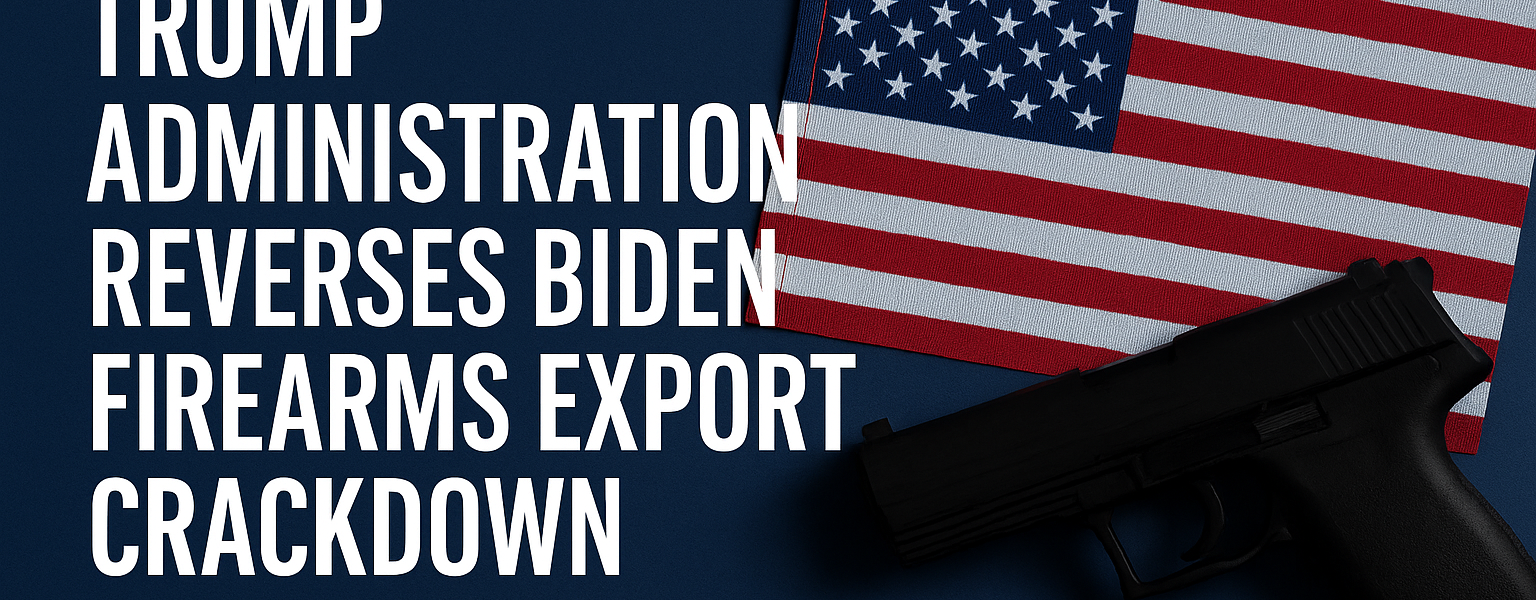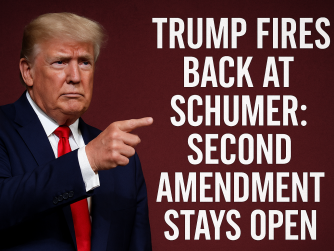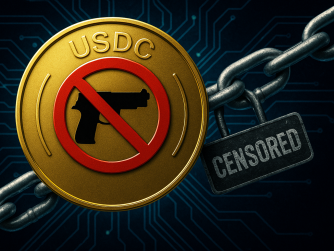Last Monday, the Bureau of Industry and Security (BIS) at the U.S. Department of Commerce published a final rule reversing the Biden-Harris Administration’s 2024 restrictions on U.S. firearms exports. The new rule rescinds virtually all of the interim final rule (IFR) enacted on April 30, 2024, which had imposed costly red tape, delays, and presumptions of denial on lawful commercial firearm exports.
The rollback restores the regulatory environment to the framework in place during President Trump’s first term and is expected to strengthen U.S. firearms manufacturers, bolster international competitiveness, and reaffirm a robust Second Amendment for Americans.
Background: The Biden-Harris Crackdown
The Biden-Harris IFR had been one prong of a broader campaign against the U.S. firearms industry. Backed by an investigation from Bloomberg News—an outlet financed by billionaire Michael Bloomberg, one of the nation’s leading anti-gun activists—the administration justified the restrictions by suggesting U.S. origin firearms fueled crime and human rights abuses abroad.
Much of that reporting relied on questionable examples. The most prominent case was a 2022 mass murder in Thailand in which the suspect used a U.S.-origin pistol—but, as local authorities confirmed, most victims were killed with a knife and the perpetrator also used a vehicle as a weapon. Despite such tenuous links, the Biden-Harris administration imposed sweeping restrictions on legitimate U.S. firearm exporters.
Critics argued that the rules not only kneecapped American businesses but also created opportunities for less transparent competitors such as China, Russia, and Turkey to dominate firearm export markets.
Public Comments and Industry Pushback
The interim rule was pushed through rapidly, but to cover procedural requirements, the administration opened a short comment period. Nearly 13,000 public comments were submitted, many coordinated by the NRA Institute for Legislative Action (NRA-ILA), which had warned that the rule would cost American gun makers hundreds of millions of dollars per year in lost sales.
Informed by this input, the BIS final rule declared that the IFR would be rescinded in its entirety, with the sole exception of maintaining new Export Control Classification Numbers (ECCNs). Additionally, the rule removes Congressional notification requirements for certain semi-automatic firearm license applications, a further reduction in bureaucratic burden.
NRA-ILA’s Role and the Trump Administration’s Approach
The NRA-ILA had previously advised the Trump administration in a memorandum tied to the President’s executive order Protecting Second Amendment Rights. Among its recommendations was the immediate rescission of the April 30, 2024 IFR, coupled with steps to streamline BIS licensing for firearm exports.
As the NRA-ILA explained:
“Unduly restricting exports hurts U.S. businesses and drives foreign buyers to overseas competitors who are far less concerned with and capable of preventing diversion and misuse than the companies and officials involved in U.S. exports.”
This week’s reversal tracks that advice directly.
At the same time, the Trump administration has acted on other NRA-ILA suggestions, including urging the DOJ’s Civil Rights Division to investigate violations of Second Amendment rights at the state and local level, where some jurisdictions delay or deny concealed carry permits through open-ended background checks.
Looking Ahead: A Strengthened Gun Industry and Second Amendment
The reversal of Biden’s firearms export crackdown represents more than a regulatory adjustment—it underscores the Trump administration’s broader commitment to reducing burdens on industry, protecting law-abiding gun owners, and restoring the rights curtailed under Biden-Harris policies.
For manufacturers, the move means renewed access to international markets, fewer compliance obstacles, and stronger competitiveness against foreign exporters. For Second Amendment advocates, it signals ongoing momentum in a broader effort to safeguard constitutional rights.
As always, continued vigilance, advocacy, and public participation remain essential. The nearly 13,000 comments submitted against the IFR demonstrate that informed gun owners can shape policy outcomes.
Stay tuned for further developments as the Trump administration continues to advance pro-gun initiatives and roll back restrictions that undermined American freedom.







